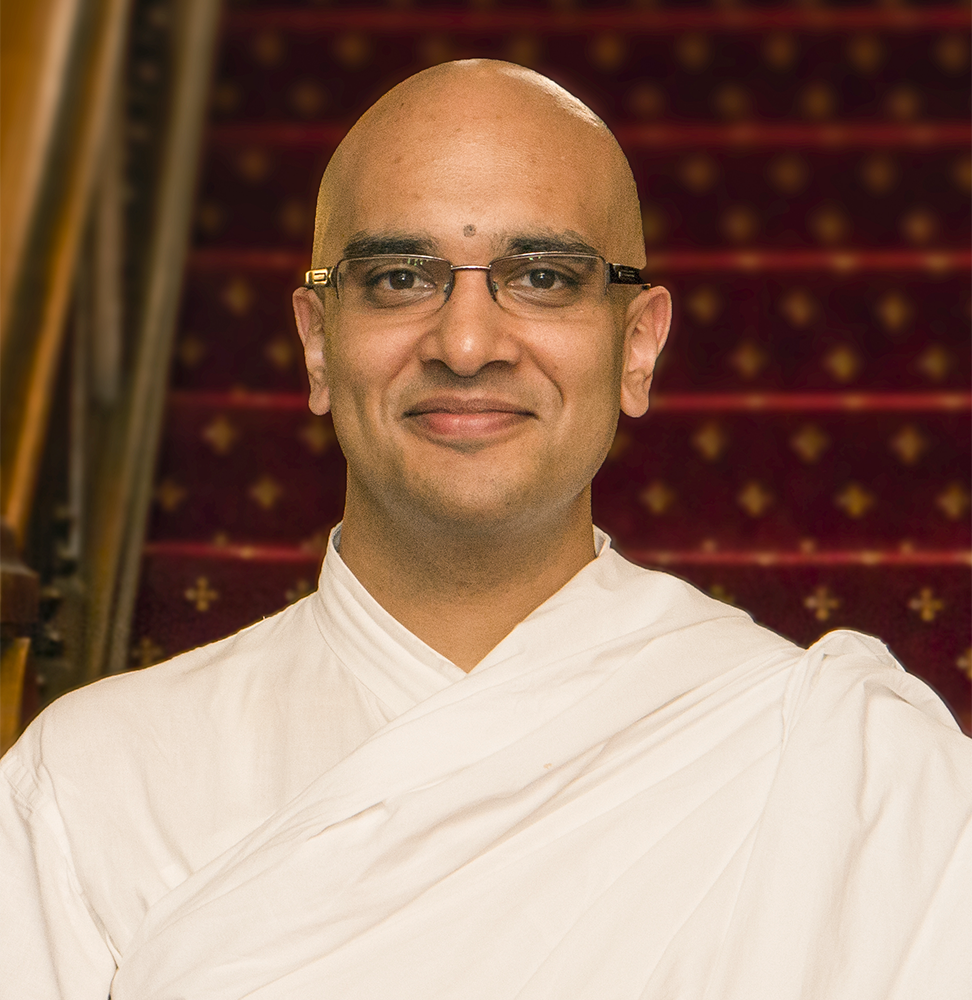I arrived on the Hilltop last August from the United Kingdom, a country engulfed in a national identity crisis, to another nation gearing up for a political showdown. Yet, instead of preoccupying myself with an uncertain future, my mind wandered to thoughts of the past.
The Seers, Yogīs and ascetics of ancient India were unanimous in their advice to people who were venturing into uncharted territory. This sage counsel was codified in humankind’s longest epic poem, the Mahābhārata: “The path to righteous success is found in the footsteps of the great” (3.297.61).
For better or worse, we are in unfamiliar territory. However, this sagacious advice gives me reassurance. Hope, too. Bear with me and I’ll explain why.
Who do we consider great? Those who are at the forefront of their fields and are world-renowned? Sure. But also, those who, while dealing with every pressure in their own lives, are still able to selflessly assist their fellow humans.
We do not have to venture far to find such great people — especially here at Georgetown. Yet, perhaps we ought to focus on a group that does not often feature among our daily thoughts: our ancestors.
Whether it was 20,000 years ago or much more recently, our ancestors ventured to this land crossing vast stretches of open ocean, facing adversity and danger. Still, their determination, grit and perseverance — augmented by their faith in humanity and eternity — allowed them to make this land their comfortable home, regardless of imperfections.
Thinking back to the hardships and uncertainty my own ancestors faced when they first ventured from India to Guyana in 1893, and my parents who made their way to the U.K. in the 1970s as immigrants, I find strength.
Biologically speaking, the very physiology that enabled them to weather their struggles is encoded in the DNA that exists within my body and the blood that flows through my veins.
When my mother moved to the U.K. as a student nurse at the age of 17, she had never experienced temperatures below 86 degrees or travelled in an airplane. She arrived to the dark, dank squalor of a one-room apartment in central London in the throes of a bitter winter.
She knew no one, found the British accent confounding and, in addition to her schooling, worked two jobs just to get by.
Still somehow, over the course of time and with the help of a few friends, she built a career for herself: first as the senior osteopathic ward sister in a London hospital and then as a senior lecturer for the Nursing Management program at Thames Valley University.
All the while, she managed our household and raised two rambunctious young children — my little sister and me — on her own after separating from my father. Nevertheless, despite all of the challenges she has faced, I have never seen her refuse help to anyone in need: she has always gone out of her way to assist those worse off than her.
Granted, the experiences of my ancestors and yours are likely quite different. At a basic level, though, they share unexpected similarities. They are great — human, but great nonetheless — because they persevered where many would have given up.
Thus, as we head into 2017, I find myself remembering our ancestors. But unlike them, we have unprecedented access to resources for assistance.
Georgetown nurtures so many groups that provided me with all the help I needed to settle into my role here. If a student ever feels alone in their thoughts, views or needs, they can always talk to someone. With this support and the strong foundation built by those before us, I find reassurance in what we can all accomplish in 2017 and beyond.
Whatever we have become in our own lives has only been possible due to our ancestors’ sacrifices, suffering and tears. And surely, because of these struggles, we are in a better place to face our uncertainties. No matter what the future holds for us, our hearts pumps the blood that has the same essence of fortitude as our ancestors. Whatever their shortcomings, they made it — and so can we.
Brahmachari Vrajvihari Sharan is Georgetown University’s first full-time director for Hindu life and the first Hindu priest-chaplain in the United States.




















